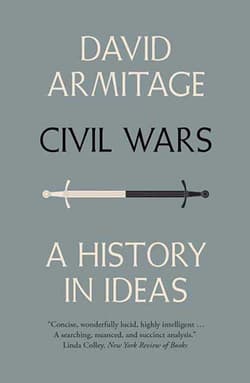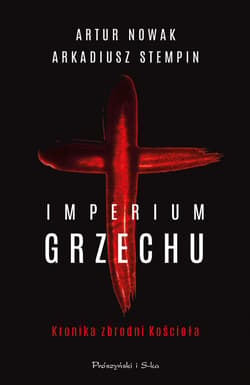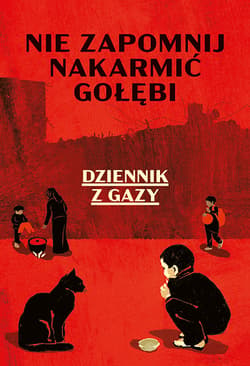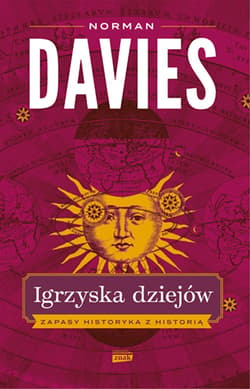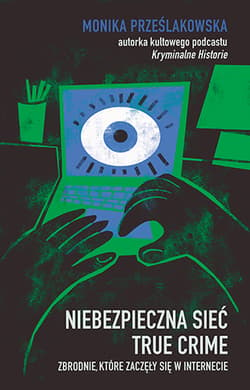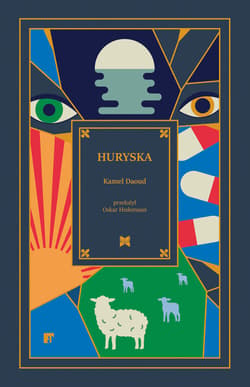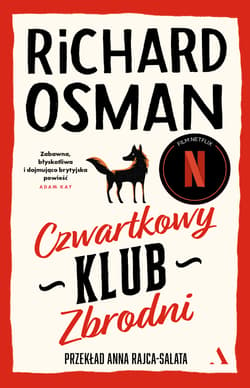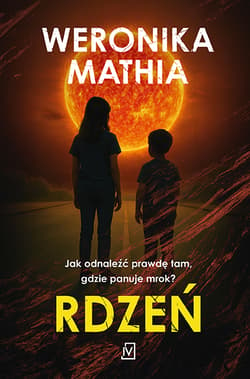David Armitage
41,25 zł
Najniższa cena z 30 dni przed obniżką.
55,00 zł
- sugerowana cena detaliczna
David Armitage
Chwilowo niedostępny
Książka. Okładka broszurowa (miękka)
Bestsellery
37,39 zł
Najniższa cena z 30 dni przed obniżką.
54,99 zł
- sugerowana cena detaliczna
John Hersey
6,9 (294)
Książka. Okładka twarda
20,77 zł
Najniższa cena z 30 dni przed obniżką.
32,00 zł
- sugerowana cena detaliczna
7,2 (971)
Książka. Okładka broszurowa (miękka)
30,65 zł
Najniższa cena z 30 dni przed obniżką.
49,99 zł
- sugerowana cena detaliczna
Artur Nowak
5,9 (24)
Książka. Okładka twarda
33,31 zł
Najniższa cena z 30 dni przed obniżką.
54,99 zł
- sugerowana cena detaliczna
Artur Nowak,
Arkadiusz Stempin
6,0 (44)
Książka. Okładka twarda
40,79 zł
Najniższa cena z 30 dni przed obniżką.
59,99 zł
- sugerowana cena detaliczna
Jenny Erpenbeck
7,0 (301)
Książka. Okładka twarda
40,60 zł
Najniższa cena z 30 dni przed obniżką.
59,90 zł
- sugerowana cena detaliczna
Tomasz P. Terlikowski
6,7 (43)
Książka. Okładka broszurowa ze skrzydełkami
37,31 zł
Najniższa cena z 30 dni przed obniżką.
59,00 zł
- sugerowana cena detaliczna
Agnieszka Kozak
Książka. Okładka broszurowa (miękka)
47,59 zł
Najniższa cena z 30 dni przed obniżką.
69,99 zł
- sugerowana cena detaliczna
Piotr Korczyński
7,2 (35)
Książka. Okładka twarda
23,99 zł
Najniższa cena z 30 dni przed obniżką.
39,99 zł
- sugerowana cena detaliczna
Thomas Brunstrøm
Książka. Okładka twarda
53,94 zł
Najniższa cena z 30 dni przed obniżką.
89,90 zł
- sugerowana cena detaliczna
Ks. Andrzej Zwoliński
Książka. Okładka twarda
38,94 zł
Najniższa cena z 30 dni przed obniżką.
64,90 zł
- sugerowana cena detaliczna
Norbi,
Sylwia Borowska
Książka. Okładka broszurowa ze skrzydełkami
29,99 zł
Najniższa cena z 30 dni przed obniżką.
49,99 zł
- sugerowana cena detaliczna
Krystyna Mirek
8,0 (51)
Książka. Okładka broszurowa ze skrzydełkami
29,94 zł
Najniższa cena z 30 dni przed obniżką.
49,90 zł
- sugerowana cena detaliczna
8,1 (233)
Książka. Okładka broszurowa ze skrzydełkami
32,94 zł
Najniższa cena z 30 dni przed obniżką.
54,90 zł
- sugerowana cena detaliczna
Maja Wolny
8,0 (1)
Książka. Okładka broszurowa ze skrzydełkami
42,86 zł
Najniższa cena z 30 dni przed obniżką.
67,00 zł
- sugerowana cena detaliczna
Aneta Godynia
7,4 (8)
Książka. Okładka twarda
37,39 zł
Najniższa cena z 30 dni przed obniżką.
54,99 zł
- sugerowana cena detaliczna
Valles Tina
8,3 (171)
Książka. Okładka twarda
31,74 zł
Najniższa cena z 30 dni przed obniżką.
52,90 zł
- sugerowana cena detaliczna
Freida McFadden
7,1 (1348)
Książka. Okładka broszurowa (miękka)
47,94 zł
Najniższa cena z 30 dni przed obniżką.
79,90 zł
- sugerowana cena detaliczna
Theis Ørntoft
7,0 (43)
Książka. Okładka twarda
33,87 zł
Najniższa cena z 30 dni przed obniżką.
54,90 zł
- sugerowana cena detaliczna
Gabriela Gargaś
8,0 (82)
Książka. Okładka broszurowa ze skrzydełkami
32,89 zł
Najniższa cena z 30 dni przed obniżką.
49,90 zł
- sugerowana cena detaliczna
Agata Przybyłek
7,8 (118)
Książka. Okładka broszurowa ze skrzydełkami
57,26 zł
Najniższa cena z 30 dni przed obniżką.
89,90 zł
- sugerowana cena detaliczna
Kalina Błażejowska
7,8 (1156)
Książka. Okładka twarda
26,94 zł
Najniższa cena z 30 dni przed obniżką.
44,90 zł
- sugerowana cena detaliczna
Paweł Sołtys
8,0 (60)
Książka. Okładka twarda
37,39 zł
Najniższa cena z 30 dni przed obniżką.
54,99 zł
- sugerowana cena detaliczna
Anonim
8,6 (37)
Książka. Okładka broszurowa ze skrzydełkami
33,99 zł
Najniższa cena z 30 dni przed obniżką.
56,90 zł
- sugerowana cena detaliczna
László Krasznahorkai
6,5 (147)
Książka. Okładka broszurowa ze skrzydełkami
31,39 zł
Najniższa cena z 30 dni przed obniżką.
49,90 zł
- sugerowana cena detaliczna
Michał Cierzniak
7,2 (22)
Książka. Okładka broszurowa (miękka)
34,59 zł
Najniższa cena z 30 dni przed obniżką.
57,65 zł
- sugerowana cena detaliczna
6,5 (142)
Książka. Okładka twarda
67,99 zł
Najniższa cena z 30 dni przed obniżką.
99,99 zł
- sugerowana cena detaliczna
Norman Davies
8,8 (23)
Książka. Okładka twarda z obwolutą
58,74 zł
Najniższa cena z 30 dni przed obniżką.
89,00 zł
- sugerowana cena detaliczna
Andrzej Pleszczyński
6,9 (19)
Książka. Okładka twarda
36,38 zł
Najniższa cena z 30 dni przed obniżką.
49,90 zł
- sugerowana cena detaliczna
Weronika Tomala
7,5 (238)
Książka. Okładka broszurowa (miękka)
27,99 zł
Najniższa cena z 30 dni przed obniżką.
44,90 zł
- sugerowana cena detaliczna
Sylwia Winnik
7,9 (111)
Książka. Okładka broszurowa ze skrzydełkami
29,26 zł
Najniższa cena z 30 dni przed obniżką.
47,99 zł
- sugerowana cena detaliczna
Wiktoria Klepacka
9,6 (8)
Książka. Okładka broszurowa (miękka)
43,90 zł
Najniższa cena z 30 dni przed obniżką.
69,99 zł
- sugerowana cena detaliczna
Charlotte McConaghy
7,6 (1292)
Książka. Okładka broszurowa (miękka)
33,99 zł
Najniższa cena z 30 dni przed obniżką.
49,99 zł
- sugerowana cena detaliczna
Magdalena Kordel
8,1 (122)
Książka. Okładka broszurowa ze skrzydełkami
33,94 zł
Najniższa cena z 30 dni przed obniżką.
49,90 zł
- sugerowana cena detaliczna
Sylwia Kubik
8,0 (190)
Książka. Okładka broszurowa ze skrzydełkami
30,94 zł
Najniższa cena z 30 dni przed obniżką.
49,99 zł
- sugerowana cena detaliczna
Agnieszka Krawczyk
7,1 (63)
Książka. Okładka broszurowa (miękka)
30,79 zł
Najniższa cena z 30 dni przed obniżką.
54,99 zł
- sugerowana cena detaliczna
Monika Prześlakowska
7,5 (58)
Książka. Okładka broszurowa ze skrzydełkami
77,54 zł
Najniższa cena z 30 dni przed obniżką.
129,00 zł
- sugerowana cena detaliczna
Thomas Pynchon
Książka. Okładka broszurowa ze skrzydełkami
35,99 zł
Najniższa cena z 30 dni przed obniżką.
59,99 zł
- sugerowana cena detaliczna
Wojciech Dutka
7,8 (73)
Książka. Okładka broszurowa (miękka)
35,99 zł
Najniższa cena z 30 dni przed obniżką.
59,99 zł
- sugerowana cena detaliczna
Tony Tulathimutte
6,4 (236)
Książka. Okładka broszurowa (miękka)
41,70 zł
Najniższa cena z 30 dni przed obniżką.
69,00 zł
- sugerowana cena detaliczna
Kamel Dauod
8,0 (112)
Książka. Okładka twarda
38,50 zł
Najniższa cena z 30 dni przed obniżką.
59,99 zł
- sugerowana cena detaliczna
Artur Nowak,
Stanisław Obirek
6,7 (108)
Książka. Okładka broszurowa ze skrzydełkami
41,40 zł
Najniższa cena z 30 dni przed obniżką.
69,00 zł
- sugerowana cena detaliczna
Praca zbiorowa
Książka. Okładka broszurowa (miękka)
41,40 zł
Najniższa cena z 30 dni przed obniżką.
69,00 zł
- sugerowana cena detaliczna
Praca zbiorowa
Książka. Okładka broszurowa (miękka)
41,40 zł
Najniższa cena z 30 dni przed obniżką.
69,00 zł
- sugerowana cena detaliczna
Praca zbiorowa
Książka. Okładka broszurowa (miękka)
39,74 zł
Najniższa cena z 30 dni przed obniżką.
54,99 zł
- sugerowana cena detaliczna
Vladimir Wolff
Książka. Okładka broszurowa (miękka)
35,86 zł
Najniższa cena z 30 dni przed obniżką.
54,99 zł
- sugerowana cena detaliczna
Richard Osman
8,0 (1)
Książka. Okładka broszurowa ze skrzydełkami
37,74 zł
Najniższa cena z 30 dni przed obniżką.
62,90 zł
- sugerowana cena detaliczna
Richard Flanagan
7,6 (3271)
Książka. Okładka broszurowa ze skrzydełkami
20,99 zł
Najniższa cena z 30 dni przed obniżką.
34,99 zł
- sugerowana cena detaliczna
Agnieszka Krawczyk
8,4 (7)
Książka. Okładka broszurowa (miękka)
38,76 zł
Najniższa cena z 30 dni przed obniżką.
59,99 zł
- sugerowana cena detaliczna
Szarota Tomasz,
Emil Marat,
Michał P. Wójcik
7,8 (11)
Książka. Okładka broszurowa ze skrzydełkami
35,99 zł
Najniższa cena z 30 dni przed obniżką.
59,99 zł
- sugerowana cena detaliczna
Noam Josephides
6,7 (66)
Książka. Okładka broszurowa ze skrzydełkami
29,94 zł
Najniższa cena z 30 dni przed obniżką.
49,90 zł
- sugerowana cena detaliczna
Weronika Mathia
7,4 (1290)
Książka. Okładka broszurowa (miękka)
36,93 zł
Najniższa cena z 30 dni przed obniżką.
59,99 zł
- sugerowana cena detaliczna
Stephen King
6,7 (5403)
Książka. Okładka twarda
41,94 zł
Najniższa cena z 30 dni przed obniżką.
69,90 zł
- sugerowana cena detaliczna
Katherine Stewart
6,8 (49)
Książka. Okładka twarda
31,59 zł
Najniższa cena z 30 dni przed obniżką.
49,99 zł
- sugerowana cena detaliczna
Uketsu
7,5 (1786)
Książka. Okładka broszurowa ze skrzydełkami
33,99 zł
Najniższa cena z 30 dni przed obniżką.
55,00 zł
- sugerowana cena detaliczna
Stephen King
6,4 (861)
Książka. Okładka broszurowa ze skrzydełkami
21,55 zł
Najniższa cena z 30 dni przed obniżką.
27,00 zł
- sugerowana cena detaliczna
Friedrich Nietzsche
Książka. Okładka broszurowa (miękka)
11,94 zł
Najniższa cena z 30 dni przed obniżką.
19,90 zł
- sugerowana cena detaliczna
Opracowanie Zbiorowe
1,0 (1)
Książka. Okładka broszurowa (miękka)
26,99 zł
Najniższa cena z 30 dni przed obniżką.
40,01 zł
- sugerowana cena detaliczna
Darko Cvijetic
8,2 (135)
Książka. Okładka broszurowa ze skrzydełkami
67,99 zł
Najniższa cena z 30 dni przed obniżką.
99,99 zł
- sugerowana cena detaliczna
Marek Górlikowski
8,0 (40)
Książka. Okładka twarda
29,99 zł
Najniższa cena z 30 dni przed obniżką.
49,99 zł
- sugerowana cena detaliczna
Artur Nowak,
Stanisław Obirek
5,6 (78)
Książka. Okładka twarda

